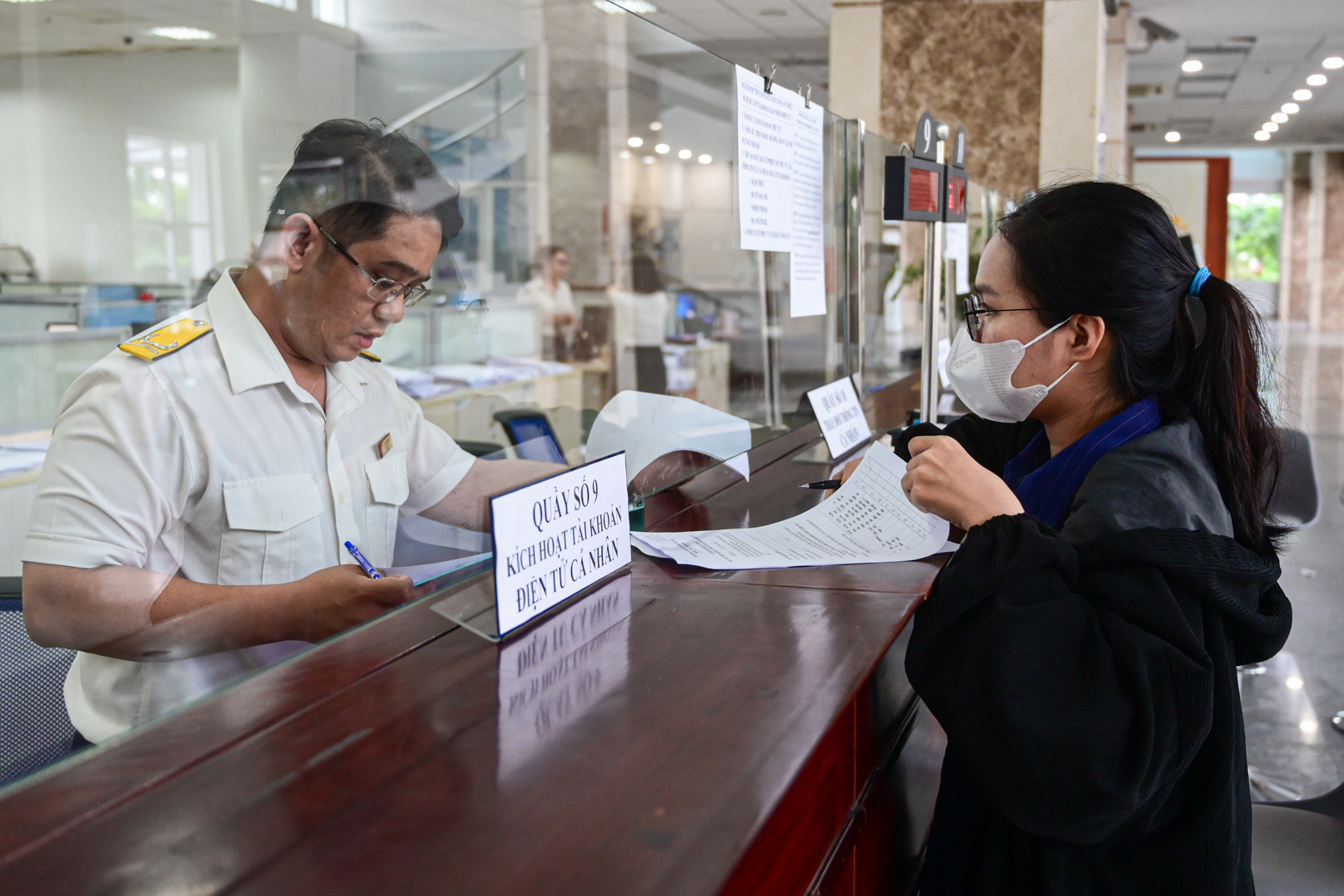
In one case, the taxation agency in a locality where Bamboo Airways registers its operation has sent a notice to the Immigration Department under the Ministry of Public Security, requesting a temporary exist suspension for Bamboo Airways CEO Luong Hoai Nam.
The taxation body said Nam is the legal representative of Bamboo Airways, the air carrier which still has not fulfilled its tax duties. The exit suspension is valid from September 11, 2024 to the day Bamboo Airways pays the tax debt.
Nam is not alone. There are many businesspeople banned from exiting the country if they have been late in tax debt payment. They could be representing public companies listing shares on the bourse, leaders of small and micro enterprises, or even managers of state-owned enterprises.
Effect on business
Once the decision on temporary exit suspension is released, businesspeople, in the eyes of their partners, customers and the community, are listed as people ‘involved in legal cases’. Therefore, partners, customers and the community dare not do business and cooperate with them anymore.
Once the names of businesspeople subject to exit suspension are publicized, they will find it difficult to seek partners and new orders to recover their production and expand markets, to earn money to pay tax debts. In this case, they are deprived of opportunities to improve their production and business activities.
Bamboo Airways, for example, announced that it would continue to lease more aircraft to expand its crew to 12 aircraft by the end of 2024 and to 18 by 2025. As the CEO of Bamboo Airways, Nam is banned from exiting the country, so he won’t have the chance to meet partners to negotiate and sign contracts on aircraft purchase and leasing.
Nam has been invited to take the post of CEO of Bamboo Airways to restructure the airline which has been bogged down in difficulties with big losses and debts. And this proves to be impossible for Nam, as he cannot go abroad to implement the duty assigned to him.
In this case, it is not only Nam and Bamboo Airways, but also people and the country which will be affected by the decision. Any news about listed companies will affect share prices, securities investors, and the stock market.
Economists have also voiced concern about the exit suspension scheme. Instead of exit suspension, taxation agencies need to impose administrative fines for delays in tax debt payments. ‘Tax debt payment delay’ is different from ‘tax evasion’.
A banking expert said prohibiting businesspeople to exit the country because of tax debts will do more harm than good, especially when businesses are facing difficulties caused by Covid-19 two years ago and typhoon Yagi some days ago.
Meanwhile, private enterprises are reported as making up 46 percent of GDP. Of this, household business accounts for 33 percent of GDP, while registered businesses account for 10 percent.
Nguyen Dinh Cung, a respected economist, said a temporary exit ban will not only affect one individual, but also the whole business and chain of businesses.
If this happens with representatives of large economic groups with ecosystems of thousands of businesses, the impact will even be larger.
“I think it would be better to remove the regulation,” Cung said.
Tran Dinh Thien, a renowned economist, suggested that there should be different levels of sanctions applied to different tax debt levels. The sanctions on businesspeople with VND1 billion unpaid tax debt must be different from sanctions on businesspeople owing VND10 billion.
Thien pointed out that the domestic economic sector of the national economy is experiencing tough days with cash flow stagnation and debts burning businesspeople. A high proportion of businesspeople and businesses now have to struggle to survive the current problems. In such circumstances, being late in paying tax debts and owing tax is commonly seen in the economy.
He said businesses are late in debt payment because they are facing difficulties, not because they are trying to commit fraud or attempting to evade tax. Specific actions and policies are now needed to encourage entrepreneurs.
Tu Giang